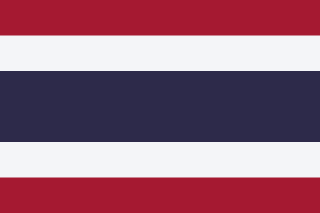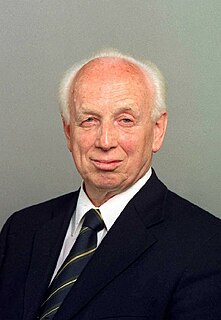
Ferenc Mádl was a Hungarian legal scholar, professor and politician, who served as the second President of the third Republic of Hungary, between 4 August 2000 and 5 August 2005. Prior to that he had been minister without portfolio between 1990 and 1993 then Minister of Education between 1993 and 1994 in the conservative cabinets of József Antall and Péter Boross. Mádl ran unsuccessfully for the position of President of Hungary in 1995, defeated by Árpád Göncz. Five years later he was elected President as the candidate of the governing conservative coalition.

The Movement for a Better Hungary, commonly known as Jobbik, is a Hungarian political party with radical and nationalist roots. At its beginnings the party described itself as "a principled, conservative and radically patriotic Christian party", whose "fundamental purpose" is the protection of "Hungarian values and interests." The party has been described as an "anti-Semitic organization" by The Independent and a "neo-Nazi party" by the president of the European Jewish Congress. Philosopher Ágnes Heller, a Holocaust survivor, says that Jobbik has never been a neo-Nazi party, although she described them as far-right and racist.

The European Parliament election of 2009 in Hungary was the election of the delegation from Hungary to the European Parliament in 2009. Hungary delegated 22 members to the European Parliament based on the Nice treaty and the election took place on 7 June.

Parliamentary elections were held in Hungary on 11 and 25 April 2010 to choose MPs for the National Assembly. They were the sixth free elections since the end of communist era. 386 members of parliament were elected in a combined system of party lists and electoral constituencies. The electoral law does not allow all adult citizens to stand for being elected unless they can validate 500 signatures of other citizens supporting their candidacy.

Krisztina Morvai is a Hungarian lawyer and nationalist politician. She is a Member of the European Parliament (MEP), having been elected on the list of the political party Jobbik – Movement for a Better Hungary in the 2009 European Parliament elections. Morvai is not a member of Jobbik, and currently supports Fidesz.

János Áder is a Hungarian politician and lawyer who has been the President of Hungary since 10 May 2012. Previously he served as Speaker of the National Assembly of Hungary from 1998 to 2002 and deputy chairman of the European Parliament Committee on the Environment, Public Health and Food Safety from January to May 2012.
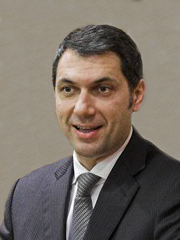
János Lázár is a Hungarian politician and Member of Parliament. He was former leader of the Fidesz parliamentary group (2010–2012) and State Secretary, then Minister of Prime Minister's Office (2012–2018) in the cabinets of Viktor Orbán. In this capacity, he was regarded as de facto the second most powerful member of the cabinet, but lost political influence by 2018. He also served as Mayor of Hódmezővásárhely from 2002 to 2012.

László Kövér is a Hungarian politician and the current Speaker of the National Assembly of Hungary. He was the acting President of Hungary from 2 April 2012 to 10 May 2012, after the resignation of Pál Schmitt.

András Schiffer is a Hungarian lawyer and former politician, who served as co-President of the Politics Can Be Different and leader of its parliamentary group. Schiffer announced his retirement from politics on 31 May 2016.

Sándor Fazekas is a Hungarian jurist and politician. He served as Minister of Rural Development, then Minister of Agriculture from 2010 to 2018, in the second and third cabinets of Prime Minister Viktor Orbán. He served as mayor of his hometown, Karcag between 1990 and 2010.
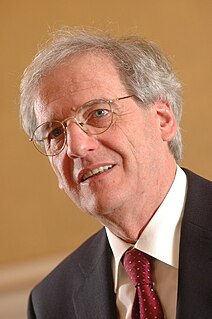
An indirect presidential election was held in Hungary on 6-7 June 2005. The main opposition party Fidesz's nominee, the former President of the Constitutional Court László Sólyom was elected President of Hungary.

An early indirect presidential election was held in Hungary on 2 May 2012, following the resignation of Pál Schmitt as President of Hungary on 2 April 2012. János Áder was elected President with an absolute majority.
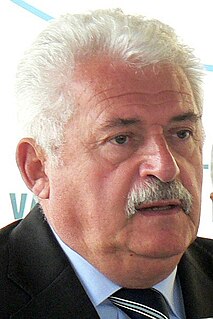
Dr. János Vilmos Fónagy is a Hungarian jurist, economist and politician, who served as Minister of Transport and Water Management between 2000 and 2002. He was Parliamentary State Secretary for National Development between 2 June 2010 and 17 May 2018.
Dr. Péter Polt is a Hungarian jurist, Chief Prosecutor of Hungary from 2000 to 2006 and since 2010.

The 2014 Hungarian parliamentary election took place on 6 April 2014. This parliamentary election was the 7th since the 1990 first multi-party election. The result was a victory for the Fidesz–KDNP alliance, preserving its two-thirds majority, with Viktor Orbán remaining Prime Minister. It was the first election under the new Constitution of Hungary which came into force on 1 January 2012. The new electoral law also entered into force that day. For the first time since Hungary's transition to democracy, the election had a single round. The voters elected 199 MPs instead of the previous 386 lawmakers.

An indirect presidential election was held in Hungary on 13 March 2017. János Áder was elected President of Hungary for a second term.
The following lists events that happened during 2018 in Hungary.






